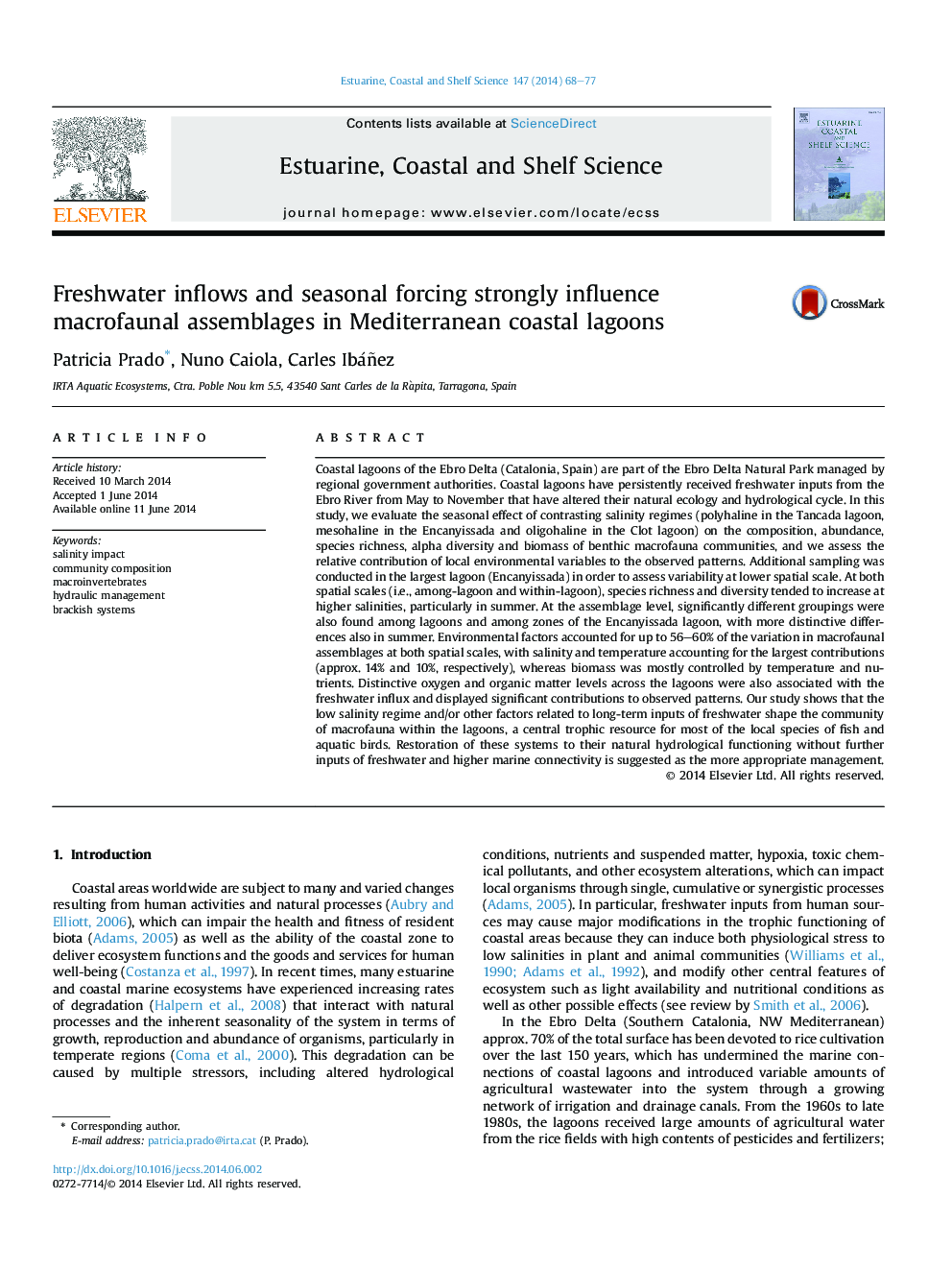| Article ID | Journal | Published Year | Pages | File Type |
|---|---|---|---|---|
| 6384936 | Estuarine, Coastal and Shelf Science | 2014 | 10 Pages |
Abstract
Coastal lagoons of the Ebro Delta (Catalonia, Spain) are part of the Ebro Delta Natural Park managed by regional government authorities. Coastal lagoons have persistently received freshwater inputs from the Ebro River from May to November that have altered their natural ecology and hydrological cycle. In this study, we evaluate the seasonal effect of contrasting salinity regimes (polyhaline in the Tancada lagoon, mesohaline in the Encanyissada and oligohaline in the Clot lagoon) on the composition, abundance, species richness, alpha diversity and biomass of benthic macrofauna communities, and we assess the relative contribution of local environmental variables to the observed patterns. Additional sampling was conducted in the largest lagoon (Encanyissada) in order to assess variability at lower spatial scale. At both spatial scales (i.e., among-lagoon and within-lagoon), species richness and diversity tended to increase at higher salinities, particularly in summer. At the assemblage level, significantly different groupings were also found among lagoons and among zones of the Encanyissada lagoon, with more distinctive differences also in summer. Environmental factors accounted for up to 56-60% of the variation in macrofaunal assemblages at both spatial scales, with salinity and temperature accounting for the largest contributions (approx. 14% and 10%, respectively), whereas biomass was mostly controlled by temperature and nutrients. Distinctive oxygen and organic matter levels across the lagoons were also associated with the freshwater influx and displayed significant contributions to observed patterns. Our study shows that the low salinity regime and/or other factors related to long-term inputs of freshwater shape the community of macrofauna within the lagoons, a central trophic resource for most of the local species of fish and aquatic birds. Restoration of these systems to their natural hydrological functioning without further inputs of freshwater and higher marine connectivity is suggested as the more appropriate management.
Related Topics
Physical Sciences and Engineering
Earth and Planetary Sciences
Geology
Authors
Patricia Prado, Nuno Caiola, Carles Ibáñez,
